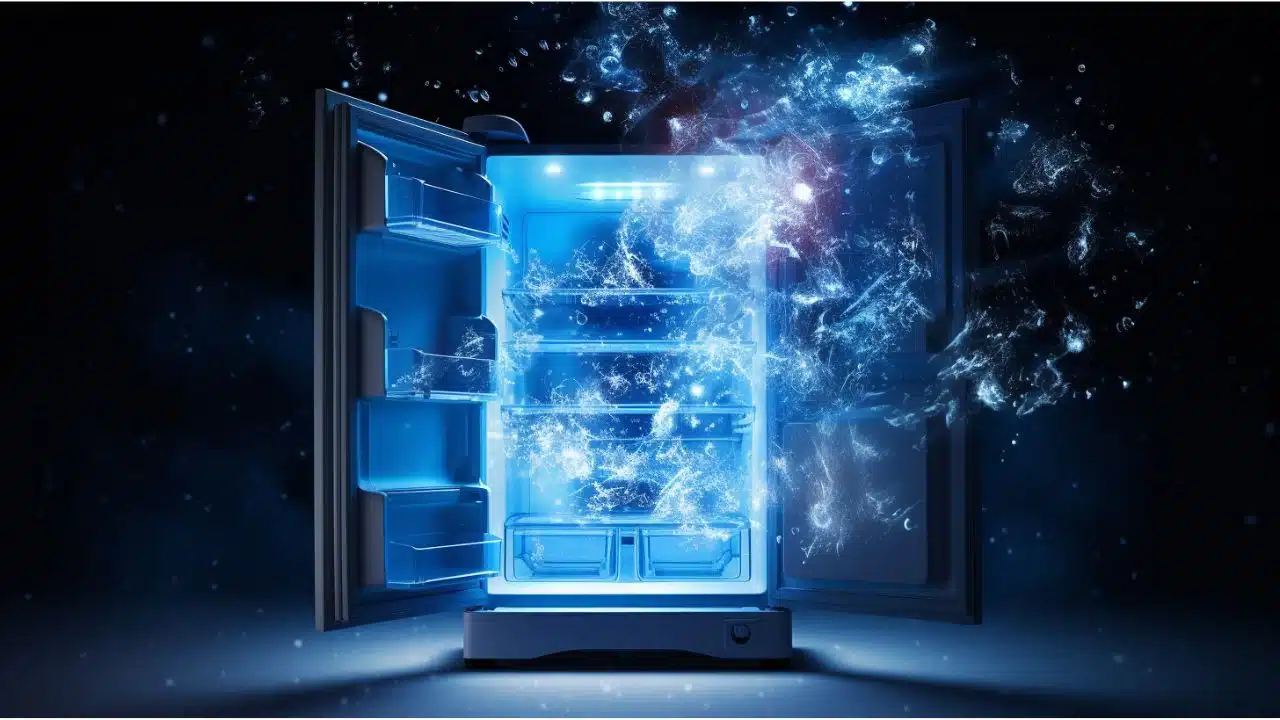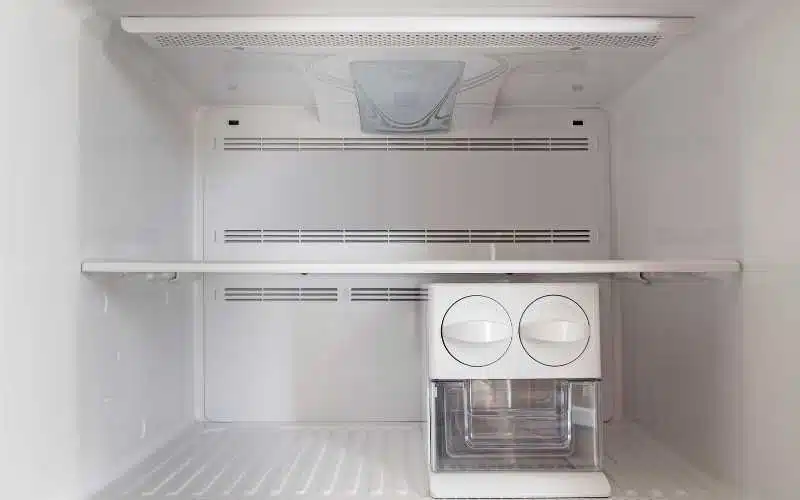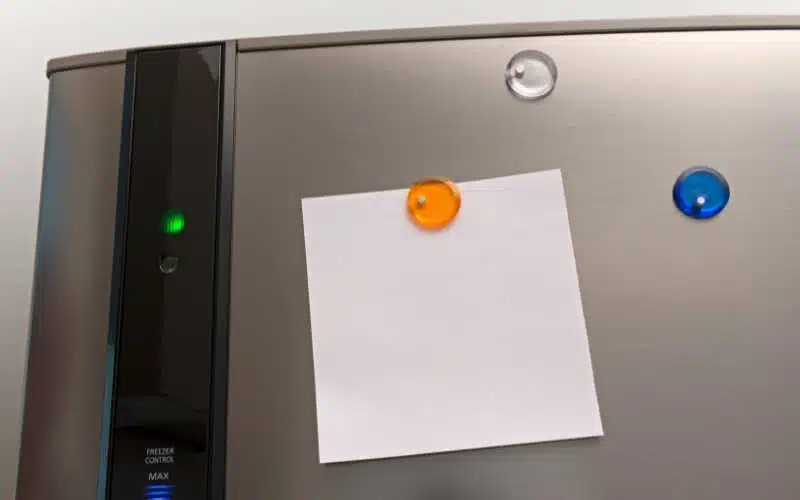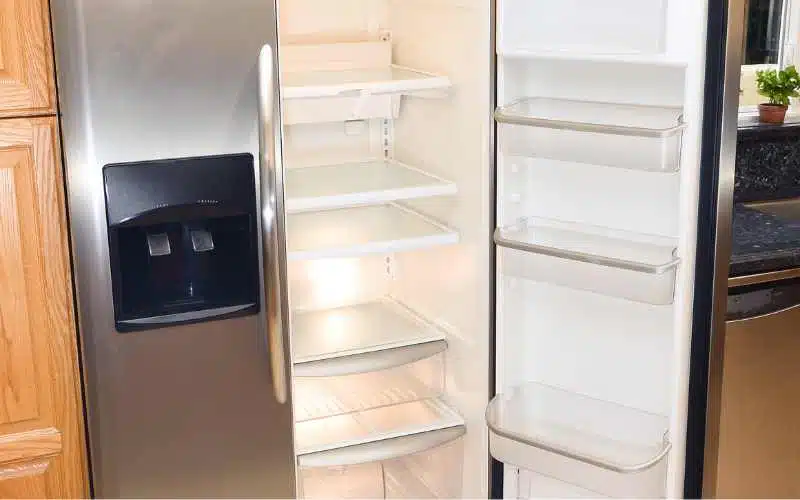Refrigerators are essential in our kitchens, keeping our food fresh and drinks cold. But what happens when this reliable appliance suddenly causes a problem?
Picture this: you plug in your fridge, and suddenly, the GFCI (Ground Fault Circuit Interrupter) trips, cutting off the power.
This can be puzzling and frustrating. Why does this happen, and what can you do about it?
In this article, we’ll explore the reasons behind a refrigerator tripping a GFCI and offer practical solutions to keep your kitchen running smoothly.
Key Takeaways: Understanding Refrigerator Tripping on GFCI Outlets
- Reasons for Tripping: Refrigerators may trip GFCI outlets due to moisture in electrical components, a compressor’s power surge, or damaged power cords.
- Preventive Measures: Ensure the fridge is on a dedicated circuit, inspect for moisture or damage, and test the GFCI outlet for functionality.
- Diagnosis and Solutions: Use a multimeter to check for short circuits, confirm dedicated circuit use, and inspect the defrost heater and compressor for faults.
- Professional Intervention: If persistent tripping occurs, consult a licensed electrician to check the wiring and potentially replace the refrigerator or circuit breaker.
- Best Practices: Follow proper installation standards, perform regular maintenance, and consider using a snubber device to manage electrical interference.
Understanding GFCI and Refrigerator Interactions
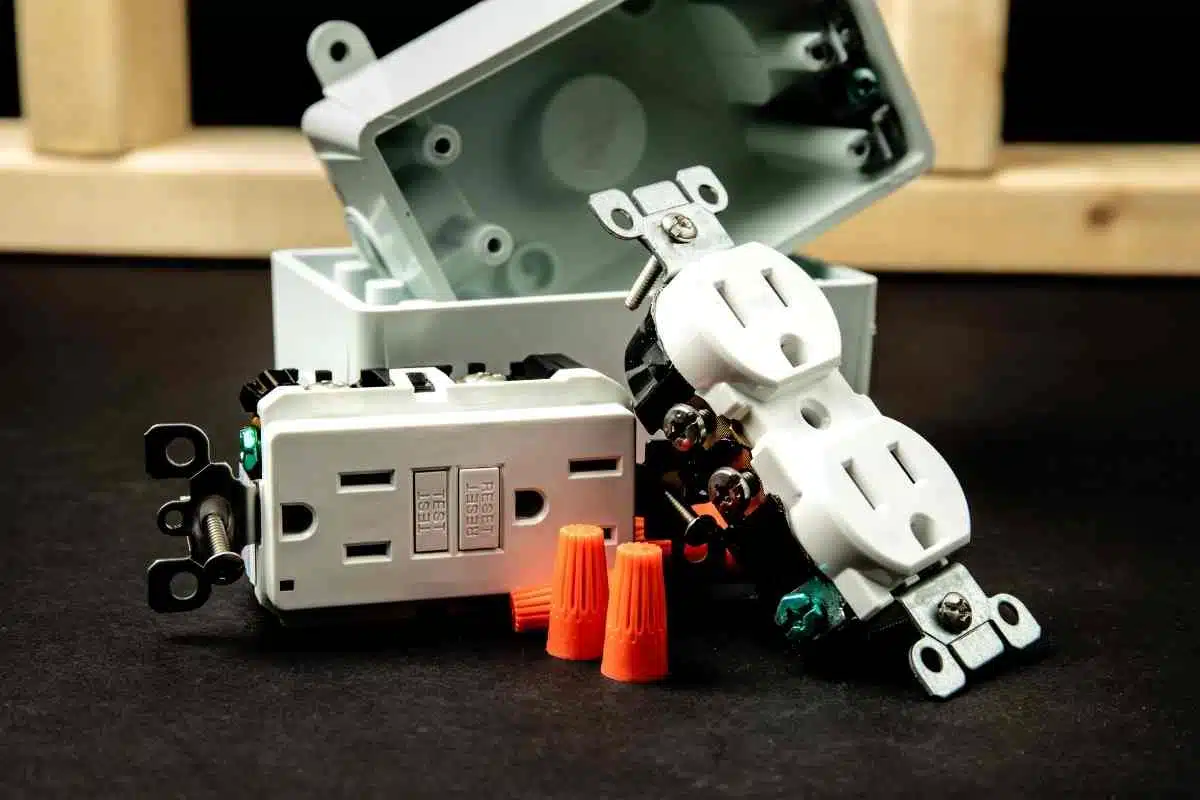
When you plug your refrigerator into a GFCI outlet, you expect it to run smoothly. However, sometimes the GFCI trips, causing your refrigerator to shut off unexpectedly.
Basics of GFCI Technology
GFCIs, or Ground Fault Circuit Interrupters, are special types of electrical outlets designed to protect you from electrical shock.
A GFCI outlet monitors the current flowing in a circuit. If it detects a sudden change or a ground fault, it trips the circuit and shuts off the electrical flow.
This safety feature minimizes the risk of shock and electrical fires. It is particularly important in areas where water is present, making GFCIs a common choice for kitchens.
- How GFCIs work:
- Monitors electrical current flow.
- Detects imbalances quickly.
- Trips or shuts off the power to prevent harm.
Common Causes of Refrigerator Tripping GFCI
Your refrigerator may trip a GFCI for several reasons. These reasons are often related to the refrigerator’s normal operations or potential faults.
The motor and other components of your refrigerator cycle on and off, which can sometimes create a small electrical surge that GFCIs may interpret as a fault.
Common culprits include:
- Moisture inside the fridge’s electrical components may cause a ground fault.
- A compressor starting up or shutting down leads to a momentary power surge.
- Damaged refrigerator power cords or wiring creates an electrical hazard.
To reduce tripping:
- Ensure your fridge is on a dedicated circuit.
- Regularly inspect your refrigerator for signs of moisture or damage.
- Test the GFCI outlet for any malfunction, and replace it if necessary.
By understanding these interactions, you can take steps to ensure that your refrigerator operates safely without unnecessary interruptions.
Diagnosing and Fixing Tripping Issues
If your refrigerator is repeatedly triggering the Ground Fault Circuit Interrupter (GFCI), it’s crucial to pinpoint and fix the issue.
Nuisance tripping might be frustrating, but understanding common causes can help you take the right steps to resolve them.
Identifying the Source
To identify the source of the tripping, start by resetting the GFCI and observe if it trips again when the refrigerator runs.
Using a multimeter, check for continuity in the refrigerator’s electrical components to rule out a short circuit.
If the GFCI trips immediately, it’s likely an electrical fault within the refrigerator.
- Checklist for tripping sources:
- Reset GFCI and monitor
- Use a multimeter to check component continuity
- Inspect for a short circuit
Last update on 2024-01-04 / Affiliate links / Images from Amazon Product Advertising API
Resolving Common Refrigerator Faults
Tackle common faults by first ensuring your fridge is on a dedicated circuit to prevent overload.
If the issue persists, inspect the defrost heater and compressor; a faulty defrost heater can be a culprit.
- Action steps for common issues:
- Confirm dedicated circuit use
- Examine the defrost heater for faults
- Test the compressor’s functionality
Professional Repair and Replacement
When your attempts don’t fix the tripping, it’s time to call a licensed electrician. They can check the refrigerator’s wiring and replace any faulty parts safely.
If the refrigerator itself is not at fault, the electrician may replace the circuit breaker.
- When to call a professional:
- Persistent tripping after fixes
- Suspected faulty refrigerator wiring
- Consideration of breaker replacement
Best Practices for Refrigerator and GFCI Outlet Usage
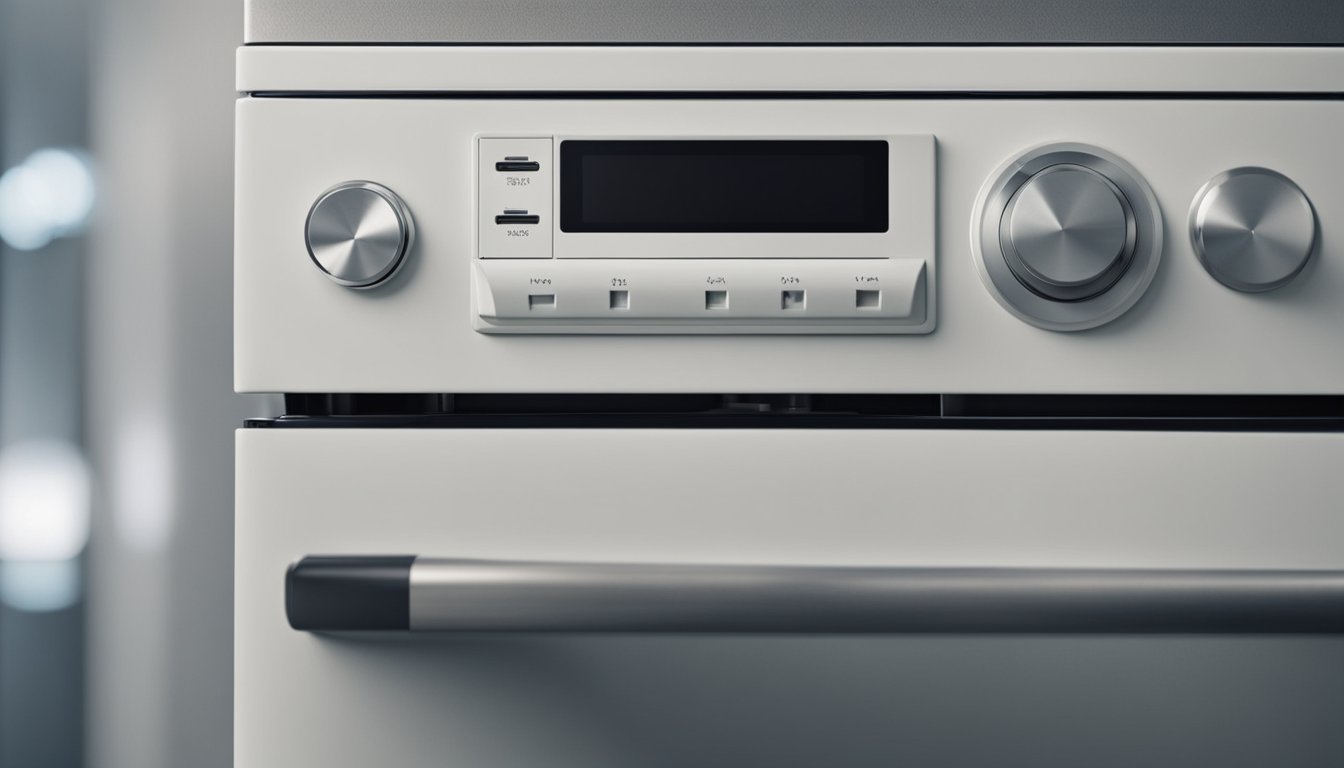
When you use a refrigerator, it’s important to ensure that it’s set up correctly with your GFCI outlet to prevent electrical issues.
Follow these guidelines to keep your kitchen safe and your appliance running smoothly.
Proper Installation and Wiring Standards
Your refrigerator needs a stable power source to run efficiently. Make sure that the outlet it’s plugged into is a standard outlet that follows the National Electrical Code (NEC).
GFCI outlets protect you from ground faults by sensing disturbances in electrical current.
- Wiring: Check that all wiring adheres to local codes and standards. The Electrical Wiring Residential book can provide guidance on following the International Residential Code (IRC).
- Appliance Placement: Keep your refrigerator in an area where the power cord can reach the outlet without stretching or coiling.
Routine Maintenance and Safety Checks
Regular maintenance is essential for your refrigerator’s longevity and safety.
- Check the Power Cord: Inspect your refrigerator’s power cord for damage. If you find any wear and tear, replace the cord immediately.
- Test the GFCI: Test the GFCI outlet monthly by pressing the “Test” button and then the “Reset” button. If it doesn’t trip and reset, call a professional.
Remember to use a snubber if you have a refrigerator with vapor compression that’s near a GFCI outlet.
This device can help prevent nuisance tripping by managing the appliance’s interference with the outlet.
Technical Insights into GFCI Performance
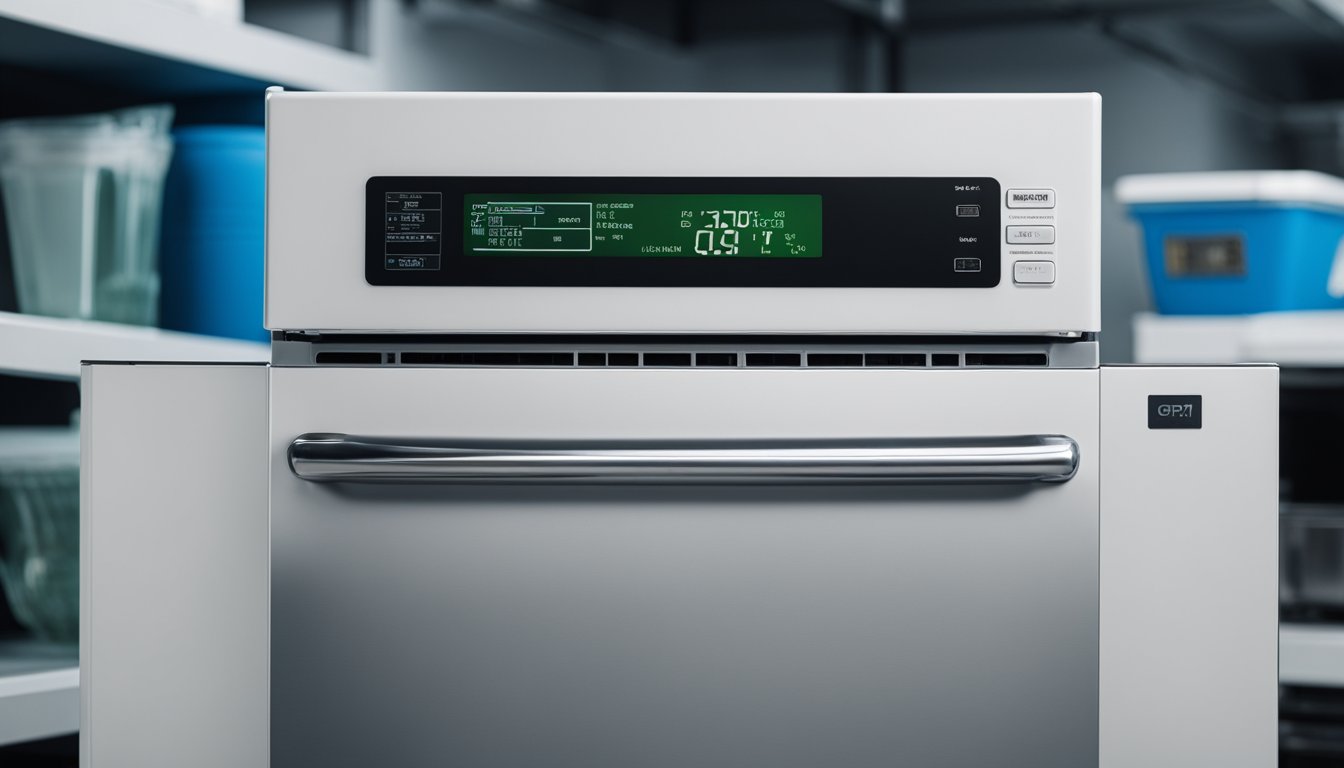
When your refrigerator trips a GFCI, it’s often due to electrical issues that need your attention. You’ll learn why these trips happen and how to address them effectively.
Understanding Inductive Loads and GFCI Sensitivity
An inductive load, like your refrigerator, uses magnets to operate its motor. This can cause brief power surges that a GFCI might mistake for a dangerous fault.
GFCI outlets are designed to protect you by cutting off electricity when they detect irregularities.
Key points about inductive loads and GFCI:
- Inductive Load: A component in your fridge that can cause power fluctuations.
- GFCI Sensitivity: These outlets are sensitive and may trip due to normal fridge operations.
To understand nuisance tripping, you must know that the GFCI detects differences between the “hot” and “neutral” wires.
If it senses an imbalance, it trips, even if there’s no real danger. Nuisance tripping happens when a GFCI outlet repeatedly trips for no apparent safety reason.
Reasons for nuisance tripping:
- Overloading: Too many devices on one circuit causing an imbalance.
- Defective Compressor: A worn-out fridge compressor can create electrical issues.
- Insulation Problems: Worn or rusted insulation can cause leaks that trip the GFCI.
Advanced Solutions to Mitigate Nuisance Tripping
If nuisance tripping is common, consider installing snubbers. They are devices designed to stabilize the electrical current and reduce trips. It’s essential to install them correctly to ensure they work as intended.
Ways to mitigate nuisance tripping:
- Examine the Compressor: Have an electrician check if your fridge’s compressor is defective.
- Check Insulation: Inspect the insulation on your fridge’s wiring for any damage.
- Install Snubbers: These devices can help prevent false trips by stabilizing electrical currents.
Remember, if you’re unsure about handling electrical components, it’s always best to call a professional electrician. They can safely and correctly address issues with your refrigerator and GFCI outlet.
Adapting Older Refrigerators to Modern Electrical Systems
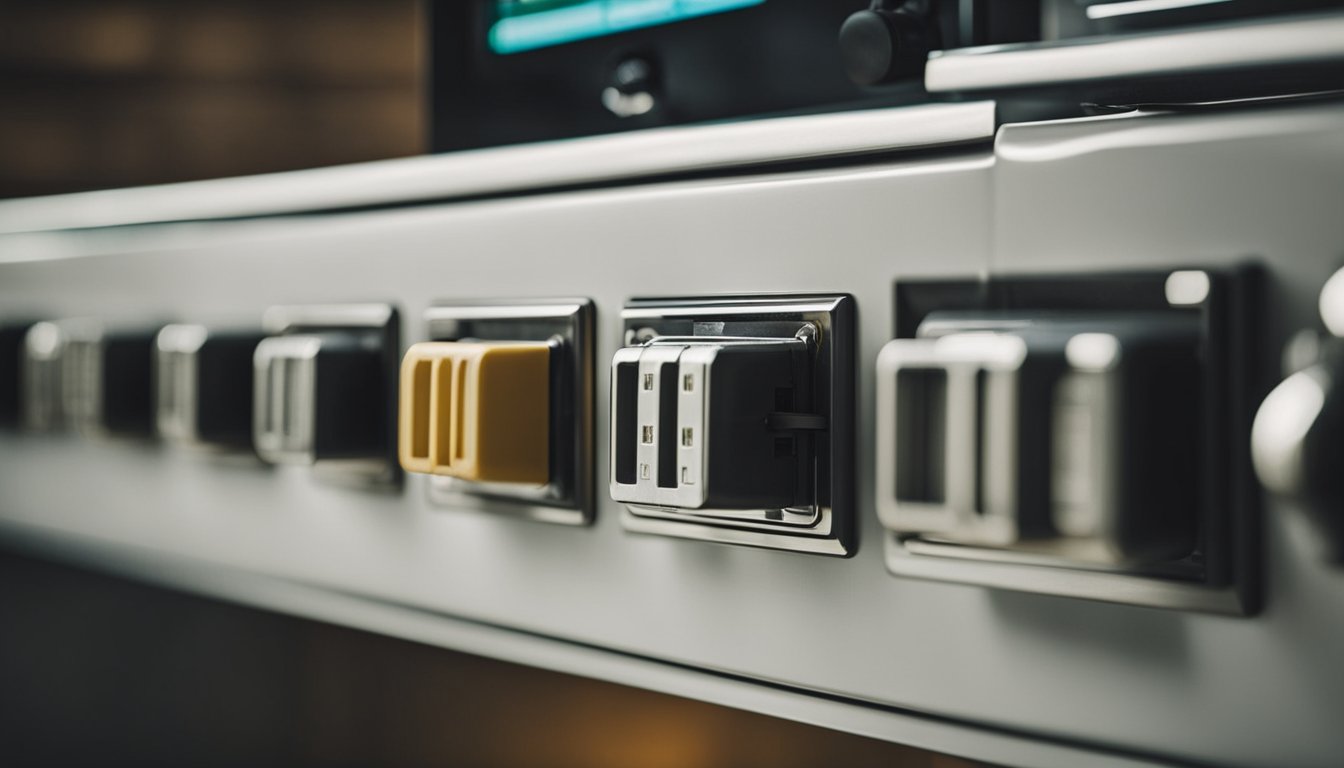
Older refrigerators may need adaptations to work seamlessly with today’s GFCI outlets and electrical systems.
Remember, a proper fit between your fridge and electrical system can prevent safety issues, such as electrical fires.
Upgrades and Retrofitting Guidelines
To ensure safety and compliance with modern electrical standards, you should consider the following upgrades for your older refrigerator:
- GFCI Compatibility: Make sure your refrigerator is compatible with Ground Fault Circuit Interrupter (GFCI) outlets to prevent tripping, which can occur when there’s a difference in electrical power flow.
- Inspect Electrical Cords and Plugs: Check for frayed wires or damaged plugs that can pose a safety risk. Replace them with appropriate electrical conductors if necessary.
- Dedicated Circuit Installation: Have an electrician install a dedicated circuit for your fridge to handle its electrical load without causing interruptions to other devices.
By taking these steps, you can often bridge the gap between your cherished appliance and the demands of modern electrical systems.
When to Opt for New Appliance Investment
Sometimes, no matter the upgrades, an older refrigerator may not be worth the cost or effort to retrofit. Consider a brand new refrigerator when:
- Frequent Tripping Occurs: If the fridge continues to trip the GFCI, it may indicate deeper electrical issues that are costly to repair.
- Energy Efficiency: New models are more energy-efficient, potentially saving you money on power bills.
Investing in a new refrigerator can provide peace of mind and greater functionality, aligning better with the safety and efficiency of current electrical systems.

